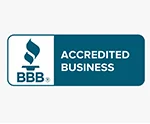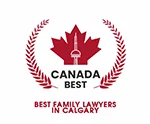Commercial litigation is an unfortunate reality for many business owners. It can be expensive, time-consuming, and stressful. Whether you are facing a breach of contract, property dispute, or any other type of litigation matter, it is critical to have a comprehensive understanding of the process.
Alberta can be particularly complex. With a comprehensive understanding of the legal landscape and the right strategies in place, you can protect your business and ensure the best possible outcome.
This guide is designed to provide business owners with a clear overview of commercial litigation in Alberta, including key considerations, steps to take, and best practices for success.
Commercial litigation in Alberta is a process for resolving legal disputes between businesses and also within the business. It can encompass a wide range of issues, including but not limited to breach of contract, disputes between directors and shareholders, employment and labor law matters, and construction disputes.
To understand the commercial litigation process in Alberta, it is important to have a basic understanding of the legal system in the province. The judicial system in Alberta is based on the British Common Law tradition and is divided into two main branches: civil and criminal law. Commercial litigation falls under the civil law branch.
The litigation process in Alberta typically begins with one party filing a statement of claim, which outlines the legal basis for their complaint. The other party then has a set period of time to respond with a statement of defense. From there, the parties engage in the discovery (also known as questioning process), where both sides gather evidence and information to support their case.
Throughout the litigation process, there may be opportunities for negotiation or settlement. If no settlement is reached, the case may proceed to trial and a judge will ultimately make a decision on the matter.
Navigating commercial litigation in Alberta can be complex, and it is important for businesses to have skilled legal counsel to guide them through the process and protect their interests. Understanding the basics of the process can help business owners feel more prepared and confident when facing litigation.
Preparing for commercial litigation in Alberta can be a daunting task for business owners. However, there are steps that can be taken to ensure that businesses are adequately prepared to navigate the legal process.
The first step in preparing for commercial litigation is to seek the advice of legal counsel. An experienced lawyer can help business owners understand the legal issues at stake, assess the strengths and weaknesses of their case, and develop a strategy for pursuing their legal rights. It is important to engage legal counsel as early as possible in the process, ideally before a dispute has escalated to litigation.
Another important step in preparing for commercial litigation is to gather and organize relevant evidence. This can include contracts, emails, invoices, and other documents that may be relevant to the case. It is important to ensure that this evidence is properly preserved and that all necessary documentation is in order.
In addition to gathering evidence, it is essential for businesses to maintain open lines of communication with their legal counsel throughout the litigation process. This can help ensure that the case is progressing in a manner that is consistent with the client’s goals and priorities.
Finally, it is important for businesses to be prepared to engage in alternative dispute resolution (ADR) methods, such as mediation or arbitration. ADR can be a more cost-effective and efficient means of resolving disputes, and it can also help to preserve business relationships that might be damaged by protracted litigation.
By taking these steps, business owners can help ensure that they are prepared to navigate the complexities of commercial litigation in Alberta and protect their legal rights and interests.
Finding the right lawyer for commercial litigation is a crucial step for business owners who want to protect their legal rights and interests. Here are some tips for finding the right lawyer:
1. Look for experience – It is important to find a lawyer who has significant experience in commercial litigation. Look for someone who has successfully handled cases similar to yours and has a track record of achieving favorable outcomes for clients.
2. Check credentials – Make sure that any lawyer you consider is licensed to practice law in your jurisdiction and has a good standing with the bar association.
3. Consider communication – Find a lawyer who communicates well and keeps you informed throughout the process. You want someone who will answer your questions, explain legal concepts in terms you can understand, and provide regular updates on the progress of your case.
4. Evaluate fees – Commercial litigation can be expensive, so it is important to understand how much you will be charged. Look for a lawyer who is transparent about their fees and provides a clear understanding of the billing process.
5. Get referrals – Ask other business owners or professionals in your network for recommendations. Referrals can be a great way to find a lawyer who has a good reputation and a history of success.
By following these tips, business owners can find the right lawyer to help them navigate the complexities of commercial litigation in Alberta and protect their legal rights and interests.
Navigating commercial litigation in Alberta can be a lengthy and complex process. However, understanding the steps involved and their timelines can help business owners prepare themselves for what lies ahead. Here are the five typical steps in commercial litigation, with associated timelines:
1. Pre-Litigation Phase – This phase involves trying to resolve the issue before filing a lawsuit. It includes sending demand letters, negotiating with the opposing party, and entering into settlement discussions. The length of this phase varies depending on the complexity of the case and the willingness of the parties to come to a resolution. It could take anywhere from a few weeks to several months.
2. Pleading Phase – This phase involves filing a statement of claim (for the plaintiff) or a statement of defense (for the defendant). The timeframe for this phase is usually 30 days, after which the other party has 20 days to file their response.
3. Discovery Phase – This phase involves gathering evidence through various methods, including questioning (examinations for discovery), document production requests, and expert reports. The timeframe for this phase could range from a few months to a year, depending on the complexity of the case.
4. Trial Preparation Phase – This phase involves preparing the case for trial, including witness preparation, drafting arguments, and selecting exhibits. The timeframe for this phase could range from a few months to a year, depending on the complexity of the case.
5. Trial Phase – This is the actual trial, where the case is presented to a judge or jury. The timeframe for this phase could range from a few days to several weeks, depending on the complexity of the case.
It’s important to note that the timelines mentioned are estimates and can vary greatly depending on the nature of the case, as well as other factors such as court availability and the scheduling of hearings. At any stage of the litigation process, it’s essential for business owners to work closely with their lawyer to ensure their legal rights and interests are protected.
In addition to the litigation process, there are alternative dispute resolution (ADR) options for business owners to consider in Alberta. ADR methods can offer a faster, less expensive, and more flexible approach to resolving conflicts than traditional litigation. Here are some of the alternative dispute resolution options available:
1. Mediation – In mediation, a neutral third party (the mediator) assists the parties in finding a mutually acceptable resolution. Mediation is voluntary and non-binding, but it can be an effective option for reaching a settlement and avoiding the costs and uncertainties of litigation.
2. Arbitration – In arbitration, a neutral third party (the arbitrator) listens to both sides and renders a binding decision. Unlike mediation, arbitration is typically mandatory mandatory, ifies have agreed to it in advance, and the decision of the arbitrator is final and legally binding.
3. Negotiation – Negotiation is a process of direct communication between the parties involved in the dispute, with the aim of reaching a mutually acceptable agreement. Negotiation can be done informally or with the help of a neutral third party.
4. Collaborative law – Collaborative law is a process in which lawyers and clients work together to seek a mutually acceptable outcome. Collaborative lawyers agree not to take the case to court, which encourages all parties to work together to find a resolution.
5. Online Dispute Resolution (ODR) – Online Dispute Resolution is a web-based platform that offers an alternative to traditional litigation and is becoming more popular in Alberta. There are various online platforms available where businesses can initiate arbitration, mediation or negotiation procedures.
Keep in mind that the ADR process can take much less time and be much less expensive than traditional litigation. But, it is important for business owners to work with their lawyers to choose the most appropriate ADR method based on the specifics of the legal matter.
The final stage of navigating commercial litigation in Alberta involves settlement negotiations and agreements. Settlement negotiations allow parties to resolve a dispute outside of court, potentially saving both time and money. The negotiation process can be initiated before or during litigation and can be facilitated by lawyers, mediators or negotiators.Here are some tips for successful settlement negotiations:
1. Be prepared – before initiating settlement negotiations, make sure you have a clear understanding of the legal issues and potential outcomes.
2. Be reasonable – both parties should come to the negotiating table prepared to make reasonable concessions.
3. Be creative – consider alternative solutions that may not have been considered before.
4. Be patient – negotiation may take time, so be prepared to work towards a resolution over several weeks or months.
5. Put the agreement in writing – once an agreement has been reached, make sure it is documented in writing and signed by all parties.
Settlement agreements can be binding or non-binding. A binding agreement means that both parties are legally bound to adhere to the terms of the agreement. A non-binding agreement, on the other hand, is a preliminary agreement that outlines the general terms of a settlement but is not legally binding.
It is important for business owners to work closely with their lawyers throughout the settlement negotiation process to ensure that their legal rights are protected and that their interests are taken into account. A successful settlement can lead to a faster resolution to the dispute and allow businesses to get back to their primary focus, running their business.
Once settlement negotiations have failed, the next step in navigating commercial litigation in Alberta is court proceedings. It is essential to prepare for court proceedings by hiring a qualified lawyer with experience in commercial litigation.The following are some crucial points to keep in mind during court proceedings:
1. Building a strong case – it is vital to collect all the necessary evidence and documentation to build a strong case.
2. Court procedures – court proceedings can be complex, so it is essential to understand the procedures and rules that govern the process.
3. Adherence to deadlines – there are strict deadlines to adhere to, such as filing court documents and submitting evidence.
4. Court appearances – a business owner may be required to attend court or give evidence in court. It is crucial to prepare well in advance for court appearances.
5. Judgments – the judge will make a final decision based on the evidence presented in court. If the judgment is favorable, the business owner may receive compensation or other relief. If the judgment is not in the owner’s favor, they may need to consider an appeal.
It is important to keep in mind that court proceedings can be lengthy and expensive. It may be beneficial to attempt settlement negotiations again during the trial. However, if there is no possibility of settling, a business owner must present a strong case in court.
It is essential to work closely with a lawyer throughout the court proceedings to ensure that all legal rights are protected, and all legal options are explored. The ultimate goal is to achieve a favorable outcome that allows the business to move on from the litigation process and focus on its core operations.
Once a judgment is made, there are two options available to business owners: appeal or enforcement. If the judgment is in their favor, they will likely not need to consider an appeal. However, if the judgment is not favorable, they may wish to consider appealing the decision.
Appeals involve reviewing the original decision to ensure that it was legally sound. There must be some kind of error in the original decision or prejudice towards one party for an appeal to be successful. Appeals are a complex process, requiring a deep understanding of the law and strong legal arguments. It is crucial to have a knowledgeable and experienced lawyer to represent the business owner during the appeals process.
Enforcement may be necessary if the other party refuses to comply with the court’s decision. This involves taking legal action to force the other party to comply with the judgment. There are several options available for enforcement, including garnishment of wages, seizure of property, and contempt of court.
It is crucial to take immediate action if the other party does not comply with the court’s decision. Failure to act could result in the other party continuing to ignore the judgment, costing the business owner time and money.
Navigating commercial litigation in Alberta can be a complex and challenging process. However, with the right approach, preparation, and legal representation, business owners can successfully resolve disputes and protect their legal rights. It is essential to work with a qualified lawyer throughout the entire litigation process to achieve the best possible outcome.
In conclusion, commercial litigation in Alberta is a nuanced legal process that requires careful preparation and expert legal representation. Business owners must be aware of the complex legal system and take appropriate measures to protect their legal rights. Throughout the litigation process, it is essential to work with a qualified lawyer who can provide sound legal advice and strategic guidance. Understanding the appeals and enforcement process is also crucial to ensuring a successful outcome. Ultimately, navigating commercial litigation in Alberta requires diligence, patience, and perseverance.


















